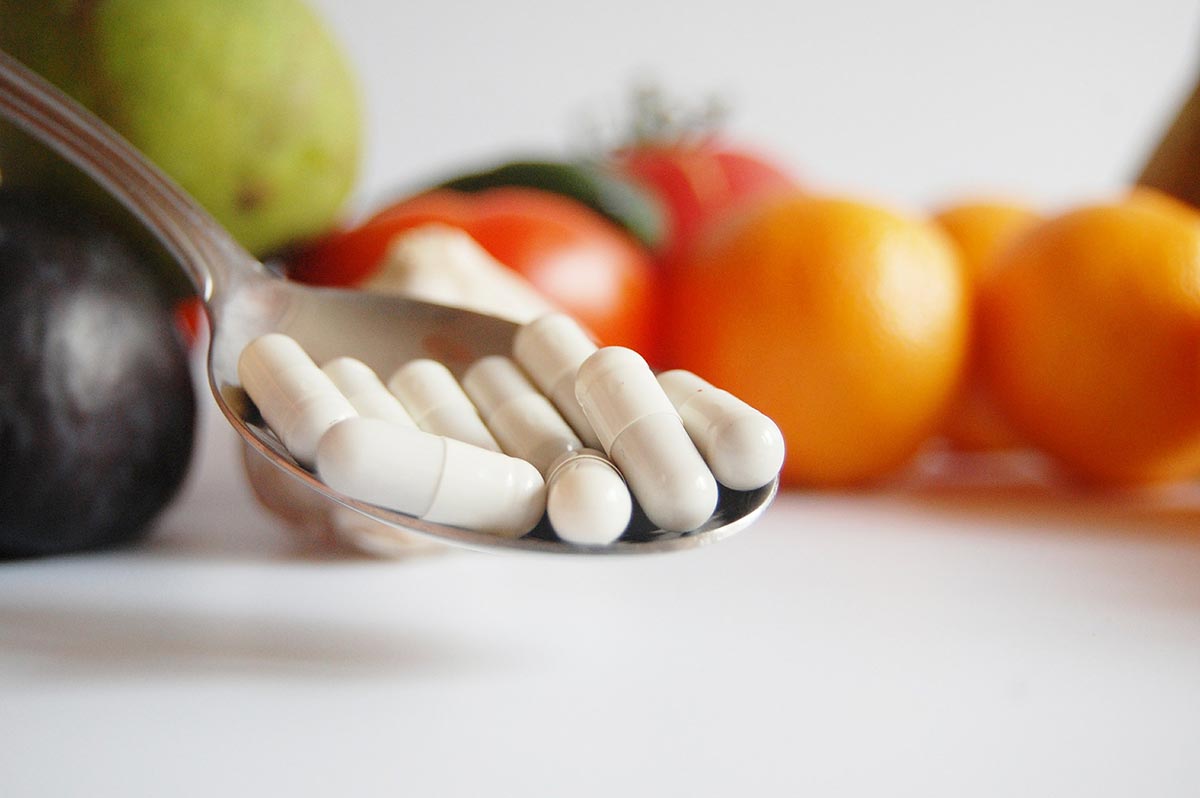If only eating an apple a day could give us all the necessary nutrients, we'd all be healthy and thriving. Unfortunately, that’s not the reality. To meet the body’s nutritional requirements, we need to consume 7-10 servings of fruits and vegetables daily to ensure we're getting the 13 essential vitamins and 17 minerals that our bodies require.
But why is this so crucial? What exactly do vitamins and minerals do for us?
The Role of Vitamins and Minerals
The human body is made up of millions of cells that are constantly regenerating. Each of these cells requires specific vitamins and minerals to function optimally and to help prevent illness. Vitamins are indispensable for processes like the production of red blood cells and the maintenance of the nervous, skeletal, and immune systems. Minerals, though required in smaller amounts, play a vital role in regulating bodily functions, supporting tissue growth, and facilitating energy release from food.
Despite our best efforts to maintain a balanced diet, it’s not always easy to meet these nutritional needs. This is where multivitamins come in. They can help fill in the gaps, ensuring we get the essential nutrients we might be missing.
The Essential Vitamins and Their Functions
Vitamins perform specific tasks that keep the body running smoothly. Vitamin A supports vision, immune function, and skin health. Vitamin D is crucial for bone health and calcium absorption, while Vitamin E helps protect cell membranes from damage. Vitamin K is necessary for blood clotting and bone metabolism. Each B vitamin plays a unique role, from energy production to red blood cell formation, while Vitamin C aids in tissue repair and boosts immunity.
However, even with the best intentions, getting enough of these vitamins through diet alone can be challenging. The modern food supply often lacks the nutritional density it once had, and our busy lifestyles can make it hard to prepare nutrient-rich meals every day. This is why supplementing with a high-quality multivitamin can be a game-changer.
The Role of Minerals in Health
Minerals, though required in smaller amounts, are just as important. Calcium is essential for strong bones and teeth, while magnesium helps with nerve function and energy production. Iron, a key component of hemoglobin, is critical for oxygen transport throughout the body. Potassium supports heart and muscle function, and zinc plays a key role in immune health and wound healing.
These minerals, along with others like iodine, selenium, and phosphorus, are essential for maintaining balance in the body and supporting overall health. Yet, many people fall short in meeting their mineral needs, often due to poor dietary choices or insufficient food variety.
The Need for Supplementation
According to experts like Dr. Meir Stampfer, MD, DrPH, a professor of medicine at Harvard Medical School, many Americans are not even close to meeting their recommended intake of several key nutrients. Dr. Ray Strand, a specialist in nutritional medicine, further emphasizes that optimal nutrient levels cannot be achieved through diet alone. He believes that high-quality, complete, and balanced nutritional supplements are essential for protecting against chronic diseases and ensuring long-term health.
While multivitamins can’t replace a healthy diet, they are an important tool for bridging the nutritional gaps that our modern diets often leave. The key is choosing a multivitamin that meets your specific needs, which can vary based on age, gender, lifestyle, and health goals.
What to Look for in a Multivitamin
When choosing a multivitamin, it's crucial to look for quality. Not all supplements are created equal, and the market is largely unregulated. The FDA treats supplements like food, meaning that companies are not required to prove their products’ efficacy or safety before bringing them to market. As Dr. Strand notes, unless a supplement is produced using pharmaceutical-grade methods, there’s no guarantee that the nutrients listed on the label are actually in the tablet.
To ensure you're getting a high-quality product, look for certifications such as Good Manufacturing Practices (GMP) and NSF certification. GMP ensures that the supplement has been produced in a facility that adheres to strict quality control standards, while NSF certification guarantees that the product meets safety and quality standards.
Fat-Soluble and Water-Soluble Vitamins
Vitamins are essential nutrients that play key roles in maintaining health and well-being. They are classified into two main categories: fat-soluble vitamins and water-soluble vitamins. Understanding the differences between these two types of vitamins is important for ensuring you meet your body’s nutritional needs.
Fat-Soluble Vitamins
Fat-soluble vitamins are absorbed in the presence of dietary fats and are stored in the liver and fatty tissues for later use. These vitamins do not need to be consumed daily, as they can be stored in the body for extended periods. There are four primary fat-soluble vitamins: Vitamins A, D, E, and K.
Vitamin A
Vitamin A is crucial for maintaining healthy vision, immune function, and skin health. It plays a key role in the formation and maintenance of healthy skin cells, and it supports the function of the heart, lungs, and kidneys. Vitamin A is found in two main forms: preformed vitamin A (retinol), which is found in animal-based foods, and provitamin A carotenoids (such as beta-carotene), which are found in plant-based foods like carrots, sweet potatoes, and leafy greens. A deficiency in vitamin A can lead to night blindness and an increased risk of infections.
Vitamin D
Vitamin D is essential for the development and maintenance of strong bones and teeth. It helps the body absorb calcium, which is vital for bone health. Vitamin D also plays a role in regulating the immune system and reducing inflammation. It can be synthesized by the body when the skin is exposed to sunlight, but it is also found in fortified foods, fatty fish, and egg yolks. A deficiency in vitamin D can lead to bone disorders like rickets in children and osteomalacia in adults.
Vitamin E
Vitamin E is a powerful antioxidant that protects cells from oxidative stress and damage caused by free radicals. It plays a key role in maintaining healthy skin and eyes, and it also supports the immune system. Vitamin E is found in vegetable oils, nuts, seeds, and green leafy vegetables. A deficiency in vitamin E is rare but can lead to nerve and muscle damage, vision problems, and weakened immune function.
Vitamin K
Vitamin K is essential for blood clotting and bone health. It helps produce proteins that are involved in blood coagulation, preventing excessive bleeding. Vitamin K also supports bone metabolism and may help prevent osteoporosis. There are two main forms of vitamin K: K1, which is found in green leafy vegetables, and K2, which is found in fermented foods and animal products. A deficiency in vitamin K can result in excessive bleeding and an increased risk of fractures.
Water-Soluble Vitamins
Water-soluble vitamins dissolve in water and are not stored in the body. They are absorbed into the bloodstream and are typically excreted in the urine if not used by the body. Since they are not stored, they need to be consumed regularly in the diet. The main water-soluble vitamins are the B vitamins and vitamin C.
Vitamin C
Vitamin C, also known as ascorbic acid, is a powerful antioxidant that helps protect the body against oxidative damage. It is essential for the synthesis of collagen, a protein that supports the skin, blood vessels, and connective tissues. Vitamin C also aids in the absorption of iron from plant-based foods and supports immune function. Citrus fruits, strawberries, bell peppers, and broccoli are excellent sources of vitamin C. A deficiency in vitamin C can lead to scurvy, characterized by fatigue, gum disease, and skin problems.
Vitamin B1 (Thiamine)
Thiamine, also known as vitamin B1, plays a crucial role in converting carbohydrates into energy. It is essential for the proper function of the nervous system and helps maintain healthy skin, muscles, and the digestive system. Thiamine is found in whole grains, pork, legumes, and nuts. A deficiency in thiamine can lead to beriberi, a condition that affects the cardiovascular and nervous systems, or Wernicke-Korsakoff syndrome, a neurological disorder.
Vitamin B2 (Riboflavin)
Riboflavin, or vitamin B2, is involved in energy production and helps maintain healthy skin, eyes, and nervous system function. It also plays a role in the metabolism of fats, proteins, and carbohydrates. Dairy products, eggs, lean meats, and green vegetables are rich sources of riboflavin. A deficiency in riboflavin can lead to symptoms like sore throat, cracks in the skin, and eye fatigue.
Vitamin B3 (Niacin)
Niacin, or vitamin B3, is important for converting food into usable energy. It supports the health of the skin, digestive system, and nervous system. Niacin can be found in poultry, fish, whole grains, and legumes. A deficiency in niacin can lead to pellagra, a condition characterized by dermatitis, diarrhea, and dementia.
Vitamin B5 (Pantothenic Acid)
Pantothenic acid, or vitamin B5, is essential for the metabolism of carbohydrates, fats, and proteins. It also helps in the synthesis of coenzyme A, which is involved in the production of energy. Pantothenic acid is found in a wide variety of foods, including eggs, avocados, and whole grains. A deficiency is rare but can lead to symptoms like fatigue, irritability, and digestive problems.
Vitamin B6 (Pyridoxine)
Pyridoxine, or vitamin B6, plays a vital role in amino acid metabolism and the production of neurotransmitters, which are essential for brain function. It also supports immune system health and red blood cell production. Vitamin B6 can be found in poultry, fish, potatoes, and non-citrus fruits. A deficiency can cause irritability, depression, and confusion.
Vitamin B7 (Biotin)
Biotin, also known as vitamin B7, is essential for the metabolism of fats, carbohydrates, and proteins. It also plays a role in maintaining healthy skin, hair, and nails. Biotin is found in eggs, nuts, and seeds. A deficiency in biotin can lead to hair loss, skin rashes, and brittle nails.
Vitamin B9 (Folate)
Folate, or vitamin B9, is critical for DNA synthesis and the formation of red blood cells. It is particularly important during pregnancy to support fetal development and prevent birth defects. Folate is found in leafy greens, legumes, and fortified grains. A deficiency in folate can cause anemia and increase the risk of birth defects.
Vitamin B12 (Cobalamin)
Vitamin B12 is essential for the production of red blood cells and the maintenance of the nervous system. It also plays a role in DNA synthesis. Vitamin B12 is found primarily in animal products like meat, fish, and dairy. A deficiency in vitamin B12 can lead to anemia, fatigue, and nerve damage.
>Both fat-soluble and water-soluble vitamins are essential for maintaining optimal health. While fat-soluble vitamins are stored in the body for long-term use, water-soluble vitamins must be replenished regularly. Ensuring you get a variety of these vitamins through a balanced diet is key to supporting overall health, energy, and well-being. If you’re concerned about your vitamin intake, a high-quality multivitamin can help fill any gaps and ensure you’re meeting your body’s nutritional needs.
Incorporating a Multivitamin into Your Health Routine
While a multivitamin can help fill the nutritional gaps in your diet, it’s not a substitute for healthy eating. The foundation of good health is a balanced diet rich in fruits, vegetables, whole grains, and lean proteins, along with regular physical activity. When combined with a high-quality multivitamin, these habits can help you achieve optimal health and reduce the risk of chronic diseases.
Ultimately, supplementation is about enhancing your well-being and supporting your body in its quest for optimal function. A multivitamin is a small but powerful tool that can help you feel better, have more energy, and support your long-term health goals. By making informed choices about the supplements you take, you can empower yourself to live a healthier, more vibrant life.
Incorporating a multivitamin into your daily routine can be a smart and effective way to support your health. By choosing a high-quality product that meets your nutritional needs, you can fill in the gaps left by your diet and ensure your body is getting the nutrients it requires to function at its best. Combine this with a balanced diet and regular exercise, and you’ll be well on your way to a healthier, more energetic you.
________________________________________________________________________________
Kari Russell, BA, PTS, NWS is the founder of bodybuzz - "Eat right. Train Right. Live right. Empower yourself!". bodybuzz provides Online Personal Training, Online Nutrition Counseling, Online Health and Wellness Seminars, high-quality pharmaceutical grade nutritional supplements and a home-based business model for those looking for another stream of income.











